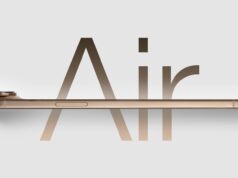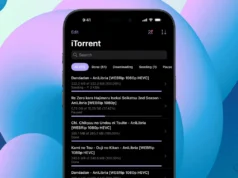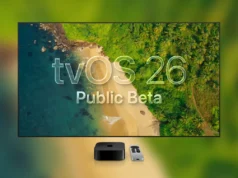Since Apple’s latest earnings call, talk of a potential Perplexity acquisition has quieted down (the fact that Perplexity was once again allegedly caught red-handed sidestepping content restrictions didn’t help).
Meanwhile, with the ever-increasing number of engineers from its Foundation Models team jumping ship, Apple’s need for fresh talent is getting more urgent by the day. But if Perplexity is a no-go, who else could Apple buy?
But I think we’re past that point now. Besides, Apple has already tried that. Although unconfirmed, reports suggest Apple made 30+ AI acquisitions in 2023, more than Google, Meta, Microsoft, or Amazon, or even some of them combined.
And even if those numbers are off, and Apple has bought fewer AI companies than its rivals in recent years, the fact remains: never mind market expectations. Apple has been falling short of its own AI ambitions and promises.
Just as one example: while OpenAI continuously improves the Canvas tool on ChatGPT, and while Anthropic improves the Artifacts tool on Claude, Apple’s Writing Tools (announced a year ago) have barely moved.
Then, there’s the AI Siri revamp, whose long list of well-documented stumbles speaks for itself.
At this point, I do believe that Apple needs more than raw talent, especially given the fact that it can’t even seem to keep the raw talent it already has. What Apple needs is an infusion of product-ready technology, made by a company that has already proven that it can actually ship good products, preferably based on its own foundation model.
The problem is: that’s a very short list.
Who could be a good fit?
OpenAI is obviously off the table. So is Anthropic, realistically. So let’s skip those two.
Perplexity could be a good fit for powering Siri’s new brains, but honestly… that’s about it. Besides, their focus seems to be elsewhere. Granted, they have built a great AI-based assistant, but that’s like Amazon producing great TV shows. At the end of the day, they just want to keep you around to sell you more toilet paper.
But at an $18 billion valuation, it feels like Apple could get more bang for its buck by looking elsewhere. Ideally, from a company that’s a better fit for its own ambitions and culture.
Could it be Mistral, the $10 billion French startup behind Le Chat? Definitely.
Mistral has its own foundation models, large models, small models, open-source models, consumer-facing products, developer tools, and a sprawling list of APIs: OCR, fine-tuning, speech, file handling, classification, coding, embeddings, agentic tasks, conversation workflows, you name it.
Beyond that, Mistral is also pretty philosophically aligned with Apple’s stance on privacy and responsible AI development. Stack that up against Perplexity’s current valuation, and what Apple would actually get in return, and Mistral starts to look like a steal.
Still in Europe, there’s Aleph Alpha. The Germany-based company doesn’t have a public valuation figure, but it’s raised close to $1 billion in funding. The problem is that their focus is on enterprise and public-sector AI (government, finance, and industrial clients), rather than consumer-facing AI.
Of course, this wouldn’t be an unprecedented pivot in Apple’s history, as Siri’s roots are famously in military-funded research. It’s a different time and context, sure, but you get what I mean.
Beyond that, the list gets thinner
There’s Ai2, which is doing fantastic work in open research and tooling, there’s Beijing-based Kimi, which is the lab behind the impressive K2 model, there’s Cohere (if you really want to push it), which leans more toward developer enterprise-facing products, and… that’s pretty much it.
I mean, there are dozens of small-scale AI companies that have been doing great work, but it feels like if Apple really wanted to acquire them, it would have already done so. And a smaller scale means smaller impact on Apple’s bottom line, and that’s not what they need right now.
And then, of course, there’s a new wave of companies making noise based purely on promise.
That’s the case with Mira Murati’s Thinking Machines Lab, now valued at $12 billion, on the promise of building a platform that will help researchers and startups train and customize their own models.
There’s also Safe Superintelligence, Ilya Sutskever’s startup, which is already valued north of $30 billion despite having no roadmap and no product beyond its stated goal of building a superintelligent system that’s inherently safe.
In the end, Apple’s options are slim, and, given the skyrocketing valuation of frontier AI labs, they are getting slimmer by the day. Currently, I believe Mistral stands out not just as the best fit, but perhaps as Apple’s last, best chance to course-correct before the gap grows even wider and harder to close.




